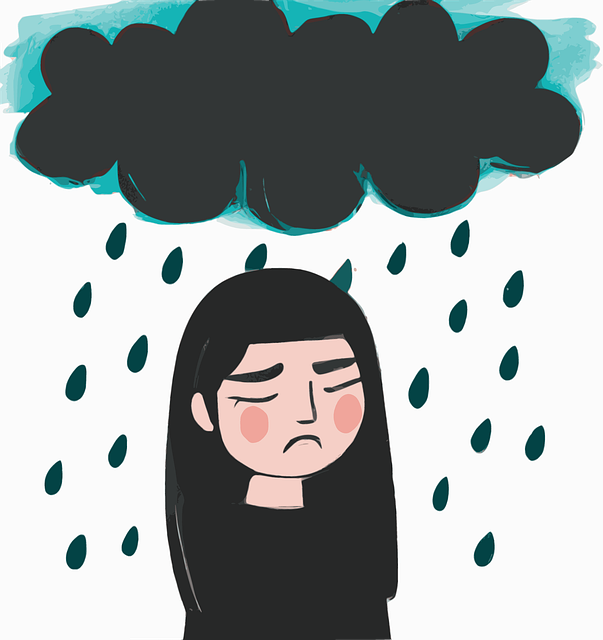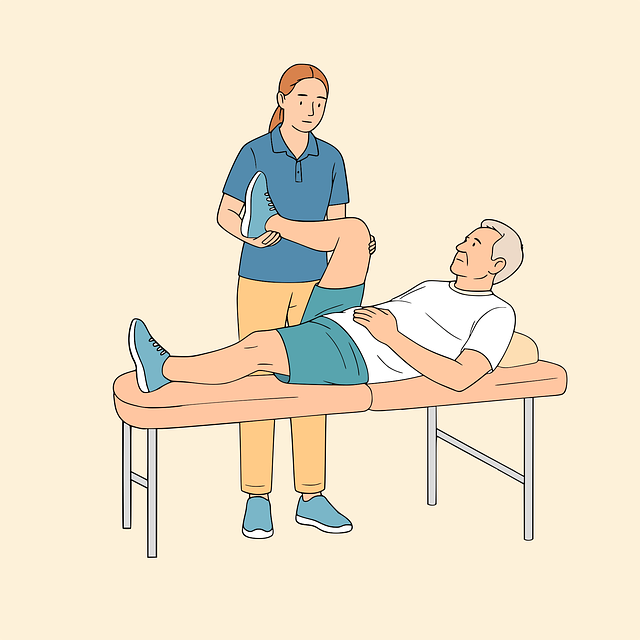Depression therapy is evolving towards personalized treatment plans, leveraging evidence-based methods like CBT, IPT, and mindfulness practices. Depression therapists collaborate with patients to understand their unique histories, personalities, and needs, creating customized sessions. This approach enhances treatment effectiveness and therapist-client relationships. Key techniques include comprehensive assessments, tailored interventions addressing underlying factors, and monitoring for adjustments. CBT, IPT, and mindfulness are powerful tools for managing depression by modifying negative thoughts, behaviors, and emotions, while lifestyle interventions like nutrition and exercise complement holistic care. Online platforms offer accessible at-home support, and ongoing maintenance with therapists prevents relapse.
Depression is a complex condition, and personalized treatment plans are revolutionizing mental health care. This comprehensive guide explores tailored strategies for managing depression, focusing on the collaborative efforts of individuals and depression therapists. By understanding unique triggers and preferences, therapists facilitate effective interventions, from evidence-based therapies like CBT to lifestyle changes and digital tools. This approach ensures a holistic journey towards recovery, empowering individuals to take control of their mental well-being. Discover how these strategies create a personalized roadmap for navigating depression.
Understanding Personalized Depression Treatment: A Unique Approach

Depression is a complex and unique condition, which is why personalized treatment plans are becoming increasingly popular among mental health professionals. This approach recognizes that each individual experiences depression differently, and what works for one person may not work for another. Personalized depression treatment involves tailoring therapy sessions to an individual’s specific needs, preferences, and goals.
Depression therapists use a range of evidence-based methods to create customized plans, including cognitive-behavioral therapy (CBT), interpersonal therapy (IPT), mindfulness-based practices, or even creative arts therapies. By understanding the patient’s history, personality traits, cultural background, and personal interests, therapists can design interventions that are more engaging and effective. This individualized approach not only improves treatment outcomes but also fosters a deeper sense of connection between therapist and client.
The Role of Depression Therapists in Tailored Care

Depression therapists play a pivotal role in providing personalized care, adapting treatments to meet each individual’s unique needs. Through in-depth assessments and ongoing collaboration with clients, these professionals gain insights into the specific factors contributing to their patient’s depressive episodes. This tailored approach goes beyond one-size-fits-all strategies, recognizing that depression manifest differently for everyone.
By employing evidence-based techniques and incorporating therapeutic modalities such as cognitive-behavioral therapy (CBT), mindfulness practices, or interpersonal therapy, depression therapists craft customized treatment plans. They closely monitor progress, making adjustments as needed to ensure the effectiveness of care. This personalized touch fosters a deeper sense of understanding and engagement, ultimately empowering individuals to actively participate in their journey towards recovery.
Assessing Individual Needs: Uncovering Underlying Factors

Depression is a complex condition that affects everyone differently, making personalized treatment essential for effective management. Assessing individual needs begins with a thorough evaluation conducted by depression therapists who employ various diagnostic tools to uncover the underlying factors contributing to someone’s depression. This process involves exploring personal history, current circumstances, and specific symptoms to tailor interventions that address unique challenges.
Therapists consider factors like past traumatic experiences, chronic illnesses, or medication side effects that might be exacerbating depressive symptoms. By understanding these nuances, they can design treatment plans that incorporate targeted therapies, such as cognitive-behavioral therapy (CBT), interpersonal psychotherapy (IPT), or mindfulness-based interventions, to address the root causes of depression and foster meaningful improvements in mental health.
Evidence-Based Therapies for Personalized Depression Management

When it comes to managing depression, evidence-based therapies play a crucial role in personalized treatment plans. These therapeutic approaches have been extensively studied and proven effective in helping individuals cope with depressive symptoms. Cognitive Behavioral Therapy (CBT) is one such well-researched method. CBT focuses on identifying and changing negative thought patterns and behaviors that contribute to depression. By challenging distorted beliefs and teaching coping strategies, CBT empowers patients to manage their moods more effectively.
Another evidence-based therapy gaining recognition among depression therapists is Interpersonal Psychotherapy (IPT). IPT targets interpersonal issues and difficulties in relationships that can trigger or exacerbate depressive episodes. This therapeutic approach helps individuals improve communication skills, resolve conflicts, and foster healthier connections with others, all of which contribute to a more stable emotional state. Combining these evidence-based methods allows for personalized depression management tailored to each individual’s unique needs and experiences.
Cognitive Behavioral Therapy (CBT): A Step-by-Step Guide

Cognitive Behavioral Therapy (CBT): A Step-by-Step Guide
Cognitive Behavioral Therapy (CBT) is a structured approach employed by depression therapists to help individuals challenge and change negative thought patterns and behaviors contributing to their depression. The process begins with identifying distressing thoughts, feelings, and behaviors, followed by examining the evidence for or against these thoughts. Depression therapists guide clients to replace irrational beliefs with more balanced and realistic ones. This involves learning to recognize automatic negative thoughts—quick, unchallenged judgments that fuel depressive symptoms.
Through CBT, individuals are taught coping strategies to manage symptoms effectively. This includes techniques like problem-solving, stress management, relaxation exercises, and skills for improving communication and social interactions. By gradually facing feared situations and changing negative thought patterns, clients gain insights into their depression and develop more adaptive behaviors, leading to improved mood and overall well-being.
Incorporating Mindfulness and Meditation Techniques

Incorporating mindfulness and meditation techniques into personalized depression treatment plans has gained significant traction in recent years, backed by substantial research highlighting their efficacy. Depression therapists often recommend these practices as a non-invasive, yet powerful tool to help individuals manage symptoms, improve emotional regulation, and enhance overall well-being. Mindfulness encourages individuals to focus on the present moment, observing thoughts and feelings without judgment, which can reduce rumination—a common contributor to depressive episodes.
Meditation, particularly mindfulness meditation, teaches individuals to cultivate a sense of calm and acceptance, fostering a healthier relationship with stress and negative emotions. Regular practice has been shown to increase activity in areas of the brain associated with positive mood regulation, memory, and emotional processing. Incorporating these techniques into therapy sessions or as at-home practices can provide depression therapists with valuable tools to offer personalized, comprehensive care tailored to each patient’s unique needs.
Lifestyle Interventions: Nutrition, Exercise, and Sleep Strategies

Depression therapists often emphasize lifestyle interventions as a crucial component of personalized treatment plans. Among these, nutrition plays a significant role in mental health. A balanced diet rich in essential nutrients can help regulate mood and energy levels, which are vital for managing depression. Some foods known to boost mood include those high in omega-3 fatty acids, vitamin D, and B vitamins, which are commonly found in fish, leafy greens, and whole grains.
Regular exercise is another powerful tool recommended by depression therapists. Physical activity releases endorphins, the body’s natural mood elevators, and can reduce symptoms of anxiety and depression. Aiming for at least 30 minutes of moderate exercise most days of the week can significantly improve overall well-being. Additionally, prioritizing quality sleep is essential. Depression therapists suggest maintaining a consistent sleep schedule and creating a relaxing bedtime routine to promote healthier sleep habits, as adequate rest is vital for emotional regulation.
Digital Tools and Apps for At-Home Depression Support

In today’s digital era, a plethora of online tools and apps offer at-home depression support, providing an accessible and often affordable alternative to traditional therapy. These platforms leverage evidence-based practices such as cognitive behavioural therapy (CBT) techniques, guided meditations, and mood tracking to assist individuals in managing their symptoms between sessions with depression therapists. With features like personalized recommendations, virtual coaching, and access to supportive communities, these digital solutions empower users to take an active role in their mental health journey.
Many apps also integrate artificial intelligence to adapt to the user’s needs over time, offering a dynamic experience that evolves as the individual’s state of mind changes. This accessibility not only expands reach but also encourages regular use, fostering consistent engagement with depression support resources. By complementing professional care or serving as a stand-alone solution for those unable to access traditional therapy, these digital tools contribute to a more holistic approach to personalized depression treatment.
Long-Term Maintenance and Relapse Prevention Planning

Personalized depression treatment plans are not one-size-fits-all, and long-term maintenance is a crucial aspect of ensuring sustained recovery. Depression therapists often emphasize the importance of ongoing support and monitoring to prevent relapse. This involves regular check-ins with a therapist or mental health professional to assess progress, identify potential triggers, and adjust treatment strategies as needed.
Relapse prevention planning is a key component of this process. It encourages individuals to anticipate setbacks, develop coping mechanisms, and create a personalized action plan for managing symptoms effectively. By equipping themselves with the right tools and support systems, those recovering from depression can navigate challenges and maintain their mental health in the long term.
